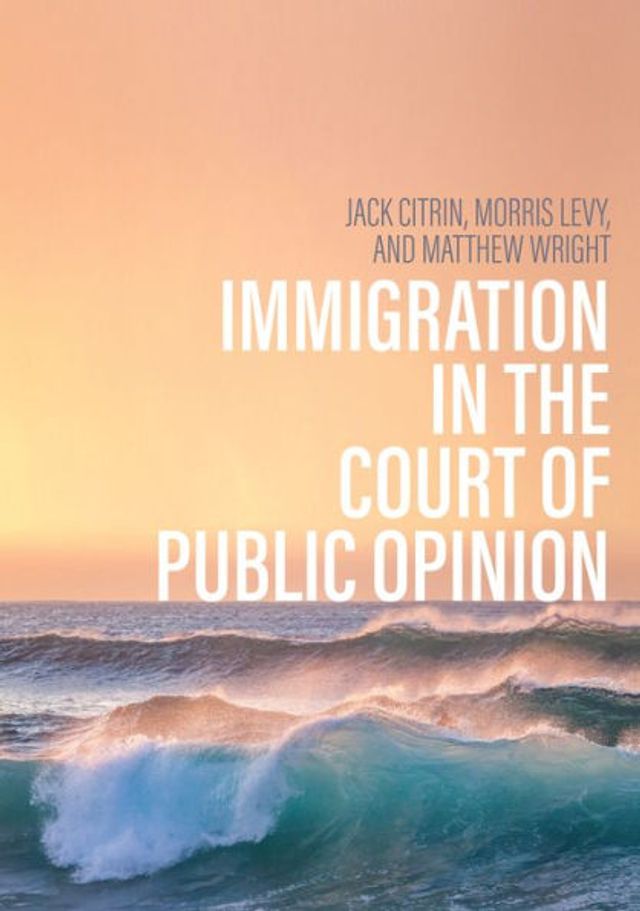Home
Immigration the Court of Public Opinion
Barnes and Noble
Immigration the Court of Public Opinion
Current price: $64.95


Barnes and Noble
Immigration the Court of Public Opinion
Current price: $64.95
Size: Hardcover
Loading Inventory...
*Product information may vary - to confirm product availability, pricing, shipping and return information please contact Barnes and Noble
What does a nation of immigrants think and feel about immigration? Recent accounts of immigration policy routinely cast Americans as divided into two warring camps – one fueled by threat to livelihoods and way of life, the other by a fervent cosmopolitanism that sees the nation-state as passé.
This counter-intuitive book shows that these accounts miss the mark. First, almost all Americans hold a mix of "pro-" and "anti-immigrant" opinions. Their views are pragmatic and flexible rather than dead-set. Second, opinions about immigration are more powerfully influenced by liberal values and concerns about the well-being of American society as a whole than by identity politics. Third, the assimilation Americans demand from immigrants matches patterns of integration that Hispanic and Asian immigrants overwhelmingly follow. Finally, American attitudes toward immigrants are "exceptional" for their openness and respect for cultural pluralism.
In Citrin, Levy, and Wright's view, long-elusive comprehensive immigration reform can win in the court of public opinion – but only if leaders heed their constituents rather than the polarized activists who claim to speak on their behalf. This expert analysis rethinks the role of public opinion in immigration matters: its insights will be welcomed by all interested in immigration debates and public policy.
This counter-intuitive book shows that these accounts miss the mark. First, almost all Americans hold a mix of "pro-" and "anti-immigrant" opinions. Their views are pragmatic and flexible rather than dead-set. Second, opinions about immigration are more powerfully influenced by liberal values and concerns about the well-being of American society as a whole than by identity politics. Third, the assimilation Americans demand from immigrants matches patterns of integration that Hispanic and Asian immigrants overwhelmingly follow. Finally, American attitudes toward immigrants are "exceptional" for their openness and respect for cultural pluralism.
In Citrin, Levy, and Wright's view, long-elusive comprehensive immigration reform can win in the court of public opinion – but only if leaders heed their constituents rather than the polarized activists who claim to speak on their behalf. This expert analysis rethinks the role of public opinion in immigration matters: its insights will be welcomed by all interested in immigration debates and public policy.


















